Better than Remarque: why we should remember the Ukrainian genius of military prose Turyanskyi – Publications
[ad_1]
Nowadays, few people can be attracted by the text under the title “Beyond Pain”. It is not surprising, because no matter how hard he tries Osyp Turyanskyithe author of this story, warned about the horrors of war in the early 20s of the 20th century, a hundred years later Ukrainians were once again forced to cross this border.
February 22 – Osyp Turyansky’s birthday. He is a Ukrainian writer whose work is a vivid example of European expressionism. The scale of life’s trials and their artistic interpretation should have included him among the world-famous writers of the “lost generation” on a par with Remarque and Hemingway. However, we still know very little about this Ukrainian writer.
Literary columnist UP Culture, Arina Kravchenkowent through the pages of literary criticism of the last century in order to answer two important questions: why did we forget the Ukrainian “lost generation” and why should we return to it now?
“Let the clear idea that in this story shines like a ray from the cemetery and the chaos of the elements and from the boundless pain and madness of people, ignite a flame in the soul of the young Ukrainian generation and lead it higher and higher on the sunny path of the will and happiness of the great Ukrainian people and to universal brotherhood and love“, – writes Osyp Turyansky from Vienna in the preface from 1920.
Such lines convince once again: history does not repeat itself, it rhymes. Rhymes with wars, trials, misfortunes. Rhymes in the end with a tendency to forget.
And misfortunes haunted the forgotten Osyp Turyansky since childhood.
The first misfortune: the captivity of poverty
The first of them was born in 1880 in the village of Surveyed in Lviv Oblast. For Turyansky, this meant constant poverty, diseases threatening death, hard work, and lack of education. Out of eight children, only the eldest Osip was able to get an education due to his illiterate father.
Turyansky graduated from the gymnasium in Lviv, and eventually entered the Faculty of Philosophy in Vienna, where he obtained the degree of Doctor of Philosophy.
Halytskyi House, 1916.
Despite his departure, Turyansky does not leave the advocacy of the Ukrainian cause in Vienna: he is a regular contributor “Ukrainische Rundschau”, a German-language Ukrainian publication that informed foreigners about political and cultural affairs of Ukraine every month. Turyanskyi also published materials on the Ukrainian issue in the mass periodicals of that time Kölnische Zeitung, Hamburger Fremdenblatt, Hilfe, Frankfurter Zeitung etc.
However, his career, which had begun despite all the obstacles, ended very soon: the flames of the First World War were ignited and the young professor was mobilized into the Austro-Hungarian army, as part of which he went to the Serbian front.
The second misfortune: in the wrong place, at the wrong time
The irony of fate and the second great misfortune.
“It is quite possible that Osyp Turyanskyi […] would have been more famous if he had joined the Legion of Sich riflemen, as many Ukrainian enthusiasts of the appearance of the national army in Galicia in 1914 did. He just didn’t have time to do it. Even before the Legion began to assemble, it was mobilized“, the literary critic writes Rostyslav Semkiv.
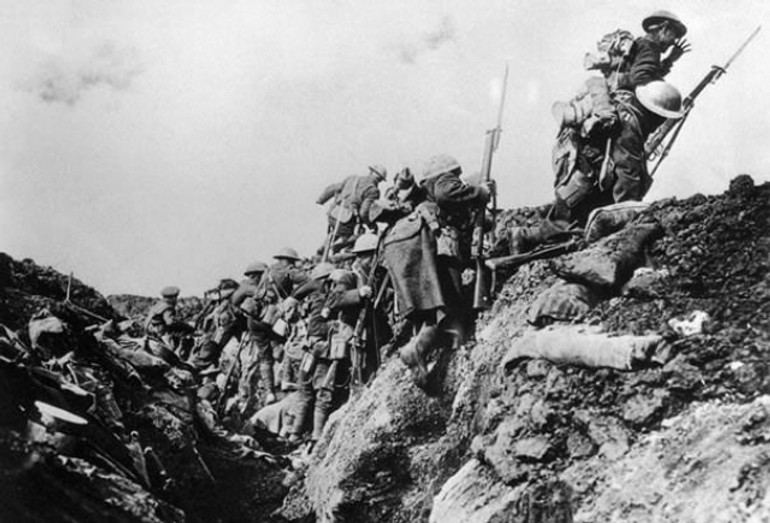
Footage of combat operations. World War I
However, the greatest misfortunes and trials were just ahead.
The third, fatal misfortune: capture
The Serbian capture in 1915 became fatal. During the German-Austrian breakthrough, the retreating Serbs chase 60,000 (!) prisoners through the Albanian mountains.
Turyanskyi writes about this experience as follows:Under the attack of the German-Austrian army, the Serbs left their land and took all the prisoners, 60,000 souls, with them and drove them to the Albanian “road of death”. In the Albanian mountains, slums, 45,000 prisoners died of hunger, cold and heartache. Along the high ridge of the Albanian mountains, covered with snow and frost, the others are now walking towards the ribbon of fate. The living corpses of people walk over the corpse of nature“.
This is how the most significant text of Osip Turyansky begins, in fact the confession of a survivor, composed of concentrated physical experience and mental suffering, a novel-poem “Beyond pain”.
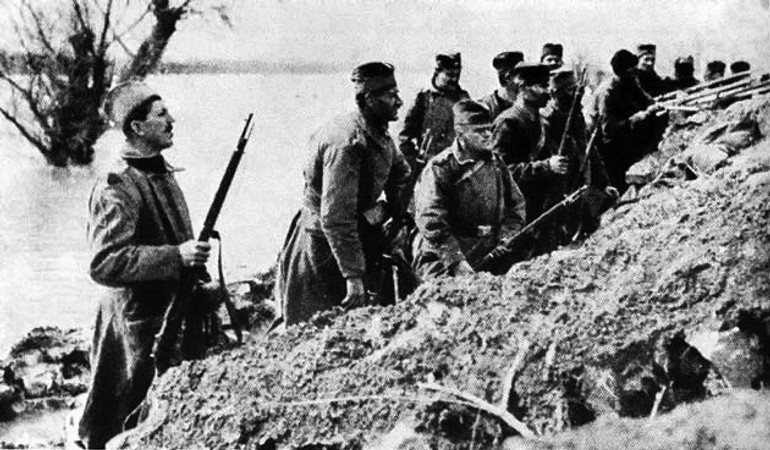
Footage of combat operations. World War I
Seven prisoners who manage to break away from the convoy and gain freedom. But what becomes of freedom without food and clothing, obtained in a state of physical exhaustion, which slowly flows into death? What kind of freedom can there be in the harsh Albanian mountains, where every precipice seems like a welcome relief from a life beyond pain?
Misfortune four: the uniqueness of non-unique grief
Few people now suspect that the writer, who was quite secondary from the point of view of the school curriculum, managed to conquer Vienna in the 20s of the 20th century.
The novel, written in yet another captivity, this time in Italian captivity, where Turyansky went after the ordeal of the mountains of Albania, received considerable approval.
Contemporaneous critics, in particular Prof. Robert Plein, wrote that “rarely has a modern poet written such a strong, ideologically deep and original work as the author of “Beyond Pain” […] it is a work of world literature”.
Bored by the bloody carnage unfolding on the pages of the new editions of other surviving authors, the Viennese reader was struck by the depth of artistic understanding, the powerful author’s voice, which could be heard even despite the pain and resentment of the survivor. The unique stylistics of Osip Turyansky stood out favorably against the background of “reading military literature, even exceptional artists of the word”, which “already got mostly fed up”.
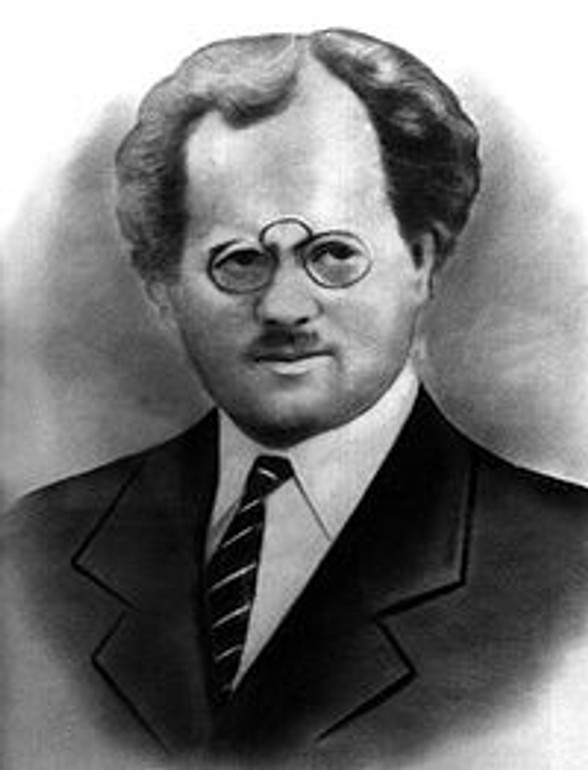
Osyp Turyanskyi.
Criticism also noted the influence of the most modern literary trends. Indeed, “Beyond pain” is perhaps the most vivid example of Ukrainian expressionism, which is in no way inferior to any of the European authors active at the time. This is another unexpected fact for those who are used to thinking about Ukrainian literature as “small”, “backward”, attached to fashionable artistic practices decades after they died out in Europe.
We are even more surprised to find theses that “you can safely say […] the limits of the blind, no figure of Motherlink can compare with Turyansky’s blind hero in terms of the power of the image.”
How did it happen – the critics of the beginning of the century ask – that after so many life trials described in the story, Turyansky leaves behind faith in life, faith in humanity, faith in future happiness with his own family? How did he manage to create this “clear source of consolation not only for modern humanity” but also for “distant, future generations”?
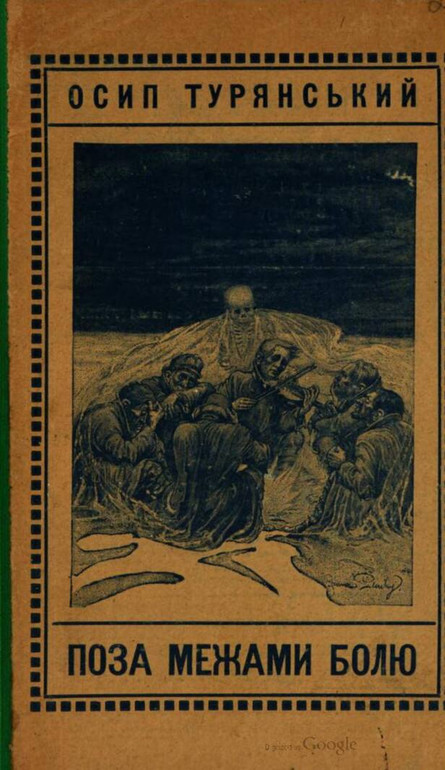
Edition of 1921.
The conclusions are once again impressive: “Turyanskyi’s soul and worldview reflect the healthy mental and moral optimism, life and ideological positivism of the entire Ukrainian people. Western Europe has been accustomed for many years to see in that boiling cauldron called Eastern Europe only a destructive struggle of peoples against peoples, insane mutual extermination of social classes and the collapse of all sense of social order and ethics.
The poem “Beyond pain” shows the whole world that Europe’s views on Ukraine are completely wrong. […] Just as the poet himself died in a terrible abyss, so his people have been bleeding since 1914 until now, just because he was the first in the world war to initiate the end of the beastly international conflict, because he also wanted to join the family of nations , as free with free, equal with equal. […] Western European diplomats sentenced him to death in the name of “one indivisible Russia”. It is a crime against European culture, it is a crime against the spirit of all humanity to destroy such a healthy and talented nation, which is so necessary for world culture, as the Ukrainian people.”
It was Turyansky, according to critics, who allowed Europe to clearly see Ukraine on the cultural map, and this is something that neither the German translations of Shevchenko, nor Frank, nor Kotsiubynskyi, nor Vinnichenko achieved.
The fifth misfortune: Hertz with Soviet criticism
However, the interwar period did not inherit a positive attitude towards Turyanskyi’s work. Turyansky himself felt that his time was running out, that he could not, and probably did not want to try to catch up with history. However, he did not stop writing.
During the entire Soviet period, people returned to Turyansky’s legacy almost twice, seeing in the well-known story a rebellion against imperialism and God, the brotherhood of peoples, and the spirit of the October Revolution. Most of Turyansky’s later works were declared unworthy of either research or reader attention.
Turyanskyi did not see these Soviet readings of his work, but even on the verge of death he was already waiting for oblivion. Roman Fedorov, one of the critics who did try, at least partially, at least under an ideologically acceptable sauce, to return Turyansky to the Soviet literary discourse, writes: “As modestly, inconspicuously as he lived, so imperceptibly for society he was buried. The newspaper “Dilo” (March 31, 1933), however, wrote in its posthumous obituary: “there is no doubt that the war experiences had a strong impact on O. Turyansky’s physical and spiritual condition, although at the same time, thanks to them, he gave the best thing in his life“.
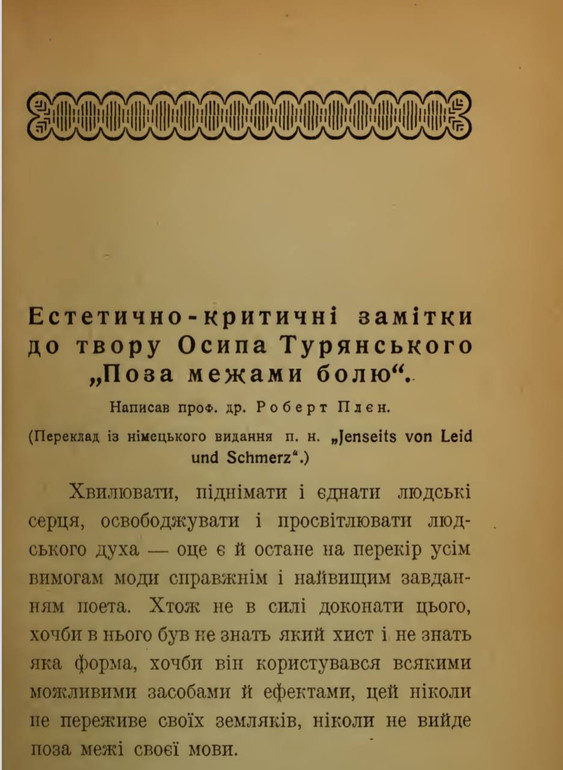
Critical afterword to the 1921 edition
However, the same “Deed” ultimately summarizes the obituary as follows: “in view of the too peculiar features of her character, she could not [ця людина] broke into public work and could not curb her often too individualistic inclinations“.
Misfortune six: In captivity of oblivion
With the restoration of independence, attention is returning to Turyansky: he is already being studied at school, his novel “Beyond Pain” is being republished, but the details of this extraordinary life remain poorly researched, and his other texts are unpublished and unread. Taking into account the fact that the Soviet reading has completely lost its relevance today, it is worth returning to Osip Turyansky, armed with a pencil and attentiveness.
To return and see in him not only a talented Ukrainian artist, but also a European expressionist, the heard Ukrainian voice of the First World War and a representative of the carefully read “lost generation”.
[ad_2]
Original Source Link











